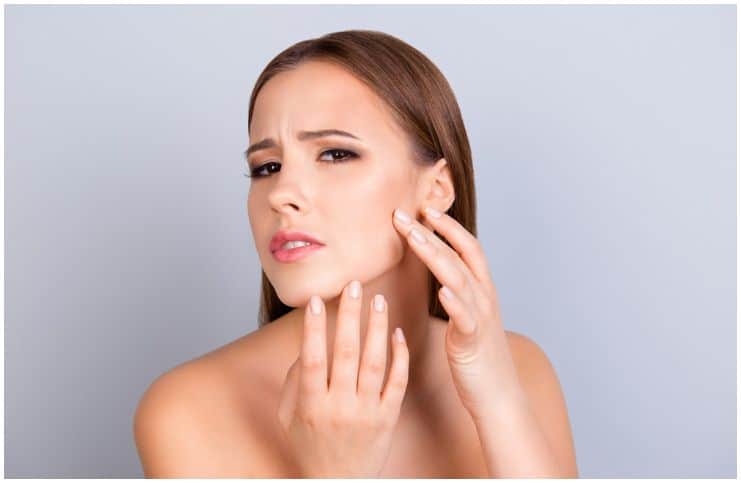Caffeine in Rooibos Tea (Redbush Tea):
Rooibos (scientific name Aspalathus linearis) is a broom-like member of the legume family of plants.
It is native to the continent of Africa and is primarily grown in the Cederberg, a small mountainous area in the region of the Western Cape province of South Africa Cape.
The plant grows about three feet tall and has needle-like leaves similar to a pine tree.
The leaves are used to make a healthy herbal tea called rooibos, bush tea, or redbush tea (particularly in Great Britain). The leaves are oxidized, producing a red color, which gives it a somewhat nutty flavor.
Chemical Composition
It is rich in many mineral contents, such as calcium, iron, potassium, copper, manganese, zinc, magnesium, and alpha hydroxy acid.
It also contains polyphenols, including flavones, flavonols, flavanones, dihydrochalcones, nothofagin, and aspalathin.
Does rooibos have caffeine?
Like most herbal teas, rooibos tea is free from caffeine and low in tannins. This is essential, as it means it does not need to be subjected to a chemical process to remove the caffeine.
This also indicates that anyone can drink it, including those who are not recommended to drink caffeine, such as pregnant women and children (the average South African drinks around five cups per day).
What are the benefits of redbush tea?
Relieves hypertension
It is a natural remedy to help prevent and relieve hypertension. It works by lowering blood pressure. Hypertension, usually known as high blood pressure, develops when too much blood is forced against the artery walls within the body.
This may lead to health problems including heart disease, which is the leading cause of death in the U. S. According to the CDC, about 33 % of Americans suffer from hypertension. As a result, many people may benefit from drinking this tea to assist with their hypertension.
Has an anti-inflammatory effect
Due to its high antioxidant levels, the tea is also anti-inflammatory.
A 2009 study by the Department of Pediatrics and Adolescent Medicine, Juntendo University School of Medicine, Tokyo, Japan, concluded that this tea could help prevent DNA inflammation and damage, both of which are linked to a wide array of diseases.
The tea is thought to be a particularly helpful brew for children because it is caffeine-free.
Full of antioxidants
It is exceptionally rich in a diverse array of antioxidants, including two polyphenols, nothofagin, and aspalathin (which is unique to this plant).
These beneficial natural compounds protect our bodies from the cell-damaging effects of free radicals, thereby protecting us from a host of serious degenerative afflictions such as Parkinson’s disease, macular degeneration, and different types of cancer.
In fact, this tea is bursting with so many cancer-fighting substances (including flavones, flavanones, and flavonols) that the Cancer Association of South Africa, after 8 years of research, has officially acknowledged it as a natural source of natural anti-cancer chemicals.
Beneficial for skin
Drinking this tea or applying it topically ensures good skin health because of the presence of zinc and alpha hydroxy acids.
In fact, a compress of tea helps in relieving rashes, acne, itching, allergies, sunburn, and other dermatological problems.
Individuals suffering from eczema can apply a solution made from this amazing tea using a cotton ball to get relief. Not only that, but alpha hydroxy has shown considerable evidence of helping with the aging process.
Improves circulation
One of the many powerful antioxidants in this tea is called Chrysoeriol, which improves body circulation by averting the action of the enzyme that causes cardiovascular disease.
Drinking tea also lowers cholesterol (LDL) and blood pressure. It has been found to be of some help in preventing diabetic vascular complications.
Rich in polyphenols
The tea contains polyphenols that have antiviral, anti-inflammatory, and antimutagenic effects. These compounds are organic chemicals that are most often praised for their antioxidant capabilities.
The tea is full of phenolic compounds within it, and polyphenols are some of the most important. They act as scavengers of free radicals throughout the body, which are harmful byproducts of cell metabolism that can cause diseases like heart disease and cancer.
Nothofagin and aspalathin are two other important antioxidants that this tea contains, making this a great beverage to boost your immune system and protect your body against all kinds of conditions and diseases.
Regenerates the liver
Research conducted on rats has shown its hepatoprotective properties, hence preventing liver damage.
In fact, frequent consumption of this tea helps regenerate the damaged liver tissues, thereby maintaining good liver health, and also being beneficial for patients with damaged liver (hepatopathy).
Anti-spasmodic effect
Most likely due to its high flavonoid content, the tea is reported to have antispasmodic properties and is frequently used in South Africa to treat babies that have stomach cramps and colic.
In addition, South Africans also use it for digestive upsets and calming intestinal spasms in adults.
How to make the tea?
Boil water in a container. Take about 1 teaspoon of leaves for 1 cup of water. If using loose-leaf tea, 1 to 2 teaspoons may be added, whereas 1 teabag per cup would be fine. Pour the water over the leaves.
Let it steep for about 5 minutes. Strain the tea. You may add sweetener for taste. For iced tea, keep the strained infusion in the refrigerator for 1 hour to cool before serving it with ice cubes.
Clearly, there are many health benefits of drinking rooibos tea. Thus, consider adding a cup to your daily regimen.


